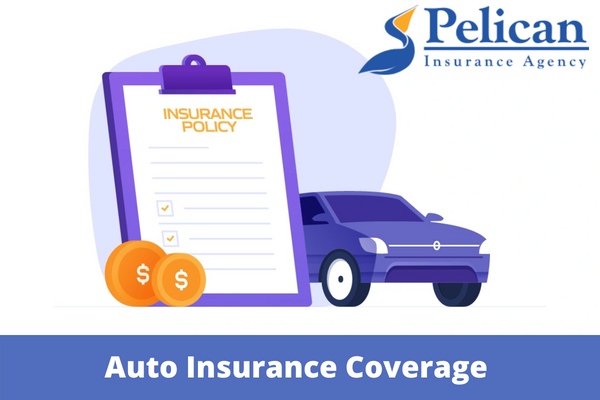How Much Auto Insurance Coverage Do I Need?

When you’re choosing the right amount of car insurance, it’s important to take into account factors like your car’s value and record—as well as how much money you would need for repairs if something were to happen. Many states require car owners to carry a minimum amount of insurance, but even in states where the law does not mandate coverage, you are still legally liable for any damage caused by your vehicle and thus best served by carrying at least some form of auto insurance.
Basic Types of Coverage
A single insurance policy for an automobile might provide coverage for various scenarios. Your independent insurance agent will give you professional advice on the type and amount of auto insurance coverage you ought to have to satisfy your unique requirements and remain in compliance with your state’s regulations. The following is a list of the primary types of coverage that your policy might include:
- Bodily Injury Liability – approximately $10,000 per person or $20,000 per accident, depending on the state. Many auto plans cap liability coverage at $300,000 or $500,000. You might be sued for a lot of money if your car injures someone. Your liability coverage should protect your assets in case of an accident. Most experts recommend $100,000/$300,000.
- Property Damage Liability – state minimums may not be enough in a severe accident. If you hit someone’s automobile and totaled it, you could be accountable for a hefty repair price. Your insurance carrier may need you to carry more than the minimum to qualify for Personal Umbrella coverage.
- Collision – how much you buy depends on the vehicle(s) you insure. It would help to determine whether to purchase insurance and how much to deduct. Higher deductibles reduce premiums. Deductibles average $250-$1,000. Collision coverage is vital for a new, pricey car but less so as it ages. Collision coverage may not be worthwhile if the car is only $1,000 and the deductible is $500. State law doesn’t require collision insurance.
- Comprehensive – covers the cost of non-collision-related damages to your vehicles, such as fire and theft. You must select a deductible, as with Collision coverage. The bigger the deductible you select, the lower your premium. Comprehensive coverage is typically sold in conjunction with Collision policy, and the two are frequently referred to as Physical Damage coverage. If you lease or finance the vehicle, the leasing company or lender may compel you to carry Physical Damage coverage, even if state law does not.
Is Car Insurance Necessary?
The legal requirements for liability insurance vary from state to state, with some needing uninsured motorist coverage or personal injury protection. In contrast, others merely require liability insurance for physical harm and property damage. Despite the variations in the standards, they all serve the same fundamental objective: to shield individuals from suffering financial loss due to another driver’s carelessness on the road.
Pelican Insurance Agency can help you find the right coverage and keep your car in good working order. We are here to help you make sure that everything is taken care of according to all applicable laws and regulations. We’ll help you choose the policy that best fits your needs while staying within your budget. Call us now!